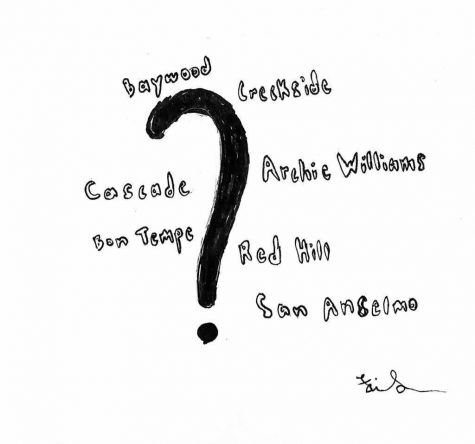“A Clockwork Orange” is disturbing beyond words
“A Clockwork Orange” had its debut back in 1971, gaining notoriety for its disturbing imagery and seemingly thoughtless violence. Because of this film, it seems that people are more accustomed to violence portrayed on screen, and screenwriters have been less hesitant to add scenes of brutality. I found myself unfazed when the movie blatantly showed extreme violence, even though it was wildly controversial when it was released.
The twisted message of “A Clockwork Orange” is the absence of free will. Alex (Malcolm McDowell) and his entourage of followers he calls “droogs” spend their days wreaking havoc around a dystopian England, just for the fun of it. Alex infamously says “a little of the old ultraviolence” before embarking on another rampage with his zealots who listen to his every command. The “droogs” have no free will, oppressed under Alex’s leadership. Alex himself has no free will, kept captive by drugs and his own mental illness.
The director, Stanley Kubrick, gained his reputation for providing the vision for “The Shining”, another thought-provoking classic. “A Clockwork Orange” has a similar style to Kubrick’s past films; he seems to pay a lot of attention to metaphors and details. Symbolism in objects in the background is a prevalent theme as well.
The soundtrack of “A Clockwork Orange” relied heavily on the personage and music of Beethoven. Beethoven played in every scene at all times. Yes, the dramatic melodies of string instruments help give emotion and climax to scenes, but unnecessary in every minute of the movie. Classical music already is melodramatic, so a full movie that is filled with screeching violins gets almost painful after a certain point. Alex even has a strange obsession with Beethoven, surrounding himself with his portrait on personal items such as window curtains.
Throughout the movie, Alex is coaxed into being a better person by authority, after getting arrested multiple times. After receiving therapy, which involves witnessing violence to get him to not want to be violent anymore, Alex becomes a new person who feels no need to be cruel to others. Although there was too much violence, “A Clockwork Orange” raised important ethical questions such as whether it is better for a person to decide to be good or to be forced into being good.
After watching this movie, I realize the movie doesn’t have the same impact that it had 48 years ago. Although back then it had an important and relevant message, it doesn’t carry the same weight now and presents itself only as a movie disturbing beyond words. There is no entertainment in watching people get assaulted for 2 hours. Even though lessons can be learned such as “violence is never the answer,” an entire movie full of it is also not the answer.
Your donation will support the student journalists of Archie Williams High School. Your contribution will allow us to purchase equipment and cover our annual website hosting costs. Each donation will receive a magazine subscription for a year (6 copies a year), and become a part of the important work our publication is doing.
$35 -- Subscription to the magazine
$50 -- Silver Sponsorship
$75 -- Gold Sponsorship
$100 -- Platinum Sponsorship










